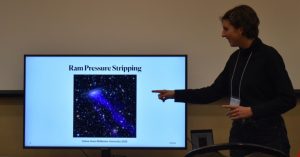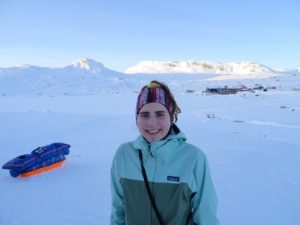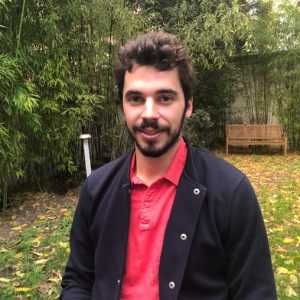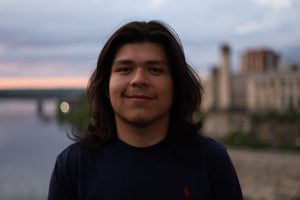Resources
McMaster University EDI Groups
- The Promoting Inclusivity in Physics & Astronomy is student-led group dedicated to making the Department of Physics & Astronomy a more inclusive, diverse, and supportive environment.
- The Equity & Inclusion Office (EIO) is a central resource where expertise is proactively drawn upon by administrators, faculty, staff, and students to advance unit-specific and institutional equity, diversity, inclusion, and accessibility goals; to enact inclusive excellence principles; and to establish respectful living, learning, and working environments that are free from harassment and discrimination, and sexual violence including through timely and procedurally fair investigative and alternative dispute resolution processes.
- The President’s Advisory Committee on Building an Inclusive Community (PACBIC) is a central organization that aims to identify and anticipate issues affecting equity-seeking communities (including but not limited to First Nations, Métis and Inuit persons, members of racialized communities, newcomers and refugees, members of diverse faith communities, persons with disabilities, LGBTQ-identified individuals, and women) both within the University and relevant to those seeking access to the University, and advise the President on such issues.
Accessibility Resources
- Accessibility Hub A Teaching and Learning Resource on Accessibility and Inclusion
- Forward with FLEXibility is a teaching and learning resource on accessibility and inclusion
- Student Accessibility Services provides academic accommodation assistance and related supports to students with disabilities at McMaster.
- AccessMac is an organization that works towards advancing accessibility and inclusion at McMaster University.
- Advisory Committee for Persons with Disabilities recommends to the City of Hamilton policies, procedures and standards that address the needs and concerns of persons with disabilities.
Resources For Indigenous Community Members
- Indigenous Student Services includes a variety of services available for Aboriginal students at McMaster, as well as a welcoming and friendly staff who are here to help support you throughout your time at McMaster.
- The Coalition of Hamilton Indigenous Leadership (CHIL) is a collaborative of Indigenous organizational leaders founded on respect and wisdom. CHIL respond to the needs of our community and support our member agencies by improving resources and advancing Indigenous voices in Hamilton.
- Local Indigenous Resources contains links to Aboriginal organizations around Hamilton.
- The Indigenous Studies Department, designed for both Indigenous and non-Indigenous students, allows you to explore the intellectual traditions of many Indigenous peoples.
- The McMaster Indigenous Research Institute exists to foster research excellence and best practices for all Indigenous related research across McMaster.
- The Cooperative of Indigenous Studies Students and Alumni was developed at McMaster University as a means to further promote and support Indigenous peoples, Knowledge and culture.
Inclusion & Anti-Racism Resources
- Inclusion & Anti-Racism Education, McMaster provides education and support to students, staff, and faculty members through consultation meetings, workshops, special events, and discussion groups, for example.
- RESIST: BIPOC Working Group for Graduate Students of Colour is a monthly working group for students of colour to discuss race and racism in the classroom and develop strategies and resources to improve conditions
- The BIPOC Resilience and Peer Support, available through the Student Wellness Center, is a safe community where Black, Indigenous and/or racialized people can share their voices and uplift one another.
- 7 Circles of Whiteness: The seven circles of whiteness is a learning tool that puts a name to the myriad of ways that whiteness exist as a construct in American culture by highlighting specific behaviors and thinking patterns associated with each of the categories.
- Tools for Interrupting Microaggressions
- Tools for Interrupting Racist Remarks
- McMaster University’s Discrimination and Harassment policy
Gender & Sexuality Resources
- McMaster Pride Community Center provides a contact point for McMaster students that may identify as LGBTQ2SI+ but anyone may access our services. We provide one on one peer support, support groups, educational events, advocacy, and social events.
- Hamilton Family Health Team is a team of health professionals formed by the Ontario government to help people get healthcare in their community.
- Sexual Violence Prevention & Response Office (SVPRO), McMaster University provides services including sexual violence support, intake, education, and more.
- 500 Queer Scientists is a visibility campaign for LGBTQ+ people and their allies working in STEM and STEM-supporting jobs
- Astronomy and Astrophysics Outlist is a list of LGBTQIA+ members of the astronomical community promoting being visible and reaching out to those who still feel that it is not yet safe for them to be public.
Human Rights And Dispute Resolution
- The Human Rights & Dispute Resolution Program at McMaster provides consultation to McMaster community members on issues related to human rights; acts as an Intake Office for formal complaints of discrimination, harassment or sexual violence; oversees and, where required, investigates formal complaints lodged under the University’s Discrimination & Harassment Policy and/or the Sexual Violence Policy; and when requested, facilitates resolution of concerns and complaints using alternate dispute resolution practices.
- The McMaster Ombuds Office works to ensure that all students, staff, and faculty are treated in a fair and equitable manner within the institution. To this end, the Office provides independent, impartial and confidential dispute-resolution advice and assistance on University-related issues to all members of the McMaster community, promotes discussion of institution-wide concerns, and makes recommendations for systemic changes as appropriate.
Mental Health & Wellbeing
- The Student Wellness Center is the place on campus to address your wellness needs. We provide a range of counselling options, medical services and wellness programs so that you can get the most out of your McMaster experience, academically and personally!
- McMaster Wellness Resources is a guide to taking care of yourself and others in university.
Physics Societies
- The American Physical Society (APS) is a nonprofit membership organization working to advance and diffuse the knowledge of physics through its outstanding research journals, scientific meetings, and education, outreach, advocacy, and international activities.
- Women in Physics
- Minorities in Physics
- LGBT+ in Physics
- Astronomy and Astrophysics Outlist is a list of LGBTQIA+ members of the astronomical community promoting being visible and reaching out to those who still feel that it is not yet safe for them to be public.
- The American Astronomical Society (AAS) is the major organization of professional astronomers in North America whose mission is to enhance and share humanity’s scientific understanding of the universe.
Self-Education Resources
Accessibility resources and practices
Indigenous culture, history, and education
- King, T. 2021 The Inconvenient Indian
- Vowel, C. 2016 Indigenous Wrires
- Wilson, S. 2008 Research Is Ceremony
- Cote-Meek, S. 2014 Colonized Classrooms
- Decolonization is not a metaphor
Indigenous science
- Cajete, G. 1995 Native Science: Natural Laws of Interdependence
- MacDonald, J. 1998 The Arctic Sky
- Peat, F. D. 1995 Blackfoot Physics
- Williamson, Ray A. 1984. Living the Sky
- The Value of Indigenous Ways of Knowing to Western Science and Environmental Sustainability
- Indigenous knowledge and science revisited
- Two-Eyed Seeing
- Indigenous astronomy (thanks to Hilding Neilson)
- A Tale of Two Observatories: Astronomy and Indigenous Communities in the Southwest US
- Astronomical Observatories and Indigenous Communities in Chile
- Mauna Kea collection
- Atchakosuk: Ininewuk Stories of the Stars
- Dawes Review 5: Australian Aboriginal Astronomy and Navigation
- Whitening the Sky: light pollution as a form of cultural genocide
- Indigenizing the next decade of astronomy in Canada
- Reframing astronomical research through an anticolonial lens — for TMT and beyond
News
Call for Student Representatives for the CAP Division on Gender Equity in Physics (DGEP)
January, 2024 – The Division of Gender Equity in Physics (DGEP) is looking for an undergraduate and a graduate student representative to join its executive committee. DGEP is a division within the Canadian Association of Physicists (CAP) aimed at promoting the inclusion of and elevating members of gender minorities in physics. The division participates in organizing sessions and panel discussions that encourage physicists from gender minorities, proposing speakers from underrepresented groups for CAP Congress plenary talks, and organizing delegations to attend conferences for gender minorities in physics.
Eligibility:
- You must be registered as a student at a university in Canada at the time of nomination (domestic and international students are welcome to apply).
- You must be a DGEP student member or join the CAP and become a member of DGEP. Please note that CAP undergraduate membership (called affiliateship), as well as the first year of membership for graduate students, is free. If you already are a CAP student member, joining DGEP is free (no additional fee). Please email membership@cap.ca to add the DGEP divisional membership to your account.
- Holding a student representative position requires attending and participating in DGEP meetings to share thoughts on DGEP initiatives and some email communication with the rest of the executive
If you are interested, please self-nominate by emailing rebellocm@torontomu.ca with a short bio (~150 words or less) as soon as feasible (within the next couple of months). Please clearly specify whether you are an undergraduate student or a graduate student. Please also encourage interested classmates/students to join DGEP and help us improve equity in physics in Canada. (Again, membership is free for all undergraduates and first-year graduate students.)
Lastly, save the date for the next DGEP meeting on Friday, March 8 (tentatively 11am Eastern Time).
Call for Applications to the ‘Advancing EDII Fund for Astroparticle Physics’
January, 2024 – Aligned with the McDonald Institute’s strategy for building equity, diversity, inclusion, and Indigenization (EDII) capacity within the discipline, the Advancing EDII Fund for Astroparticle Physics aims to financially support community building and strengthening efforts in physics training and research environments across Canada. This program is open to undergraduate, graduate, postdoc, staff, research scientists, and faculty, with some additional eligibility considerations for faculty members. For full announcement: click here. Round 1 Advancing EDII closes March 15th, 2024 at 11:59 PM ET. To submit an application, the application form and the budget form should be sent as one document to admin@mcdonaldinstitute.ca with “MI Advancing EDII Fund – [Applicant’s Last name]” as the subject line.
Student Success stories
June, 2023 – Here are a few student success stories from their summer 2022 research positions:
Celine Greis (Mitacs award)


From Celine: I modelled the effects of Ram Pressure on the clumpy molecular gas of ten Virgo Cluster Galaxies. My supervisors provided excellent support throughout the project, creating a valuable environment to ask questions, thrive and explore the wonders of the Universe and the beauty of galaxies. What started as a summer project evolved into the wish to stay at McMaster as a graduate student.
Godefroy Bichon (Mitacs award)

From Godefroy: I studied the results of simulations about how star clusters evolve following different initial parameters. I got the data generated by the simulations described by EMP-Pathfinder, and I had to explore what they could tell us about star clusters behaviour. We mainly focused on how initial sizes influence their evolution, and which are the main mechanisms that disrupt clusters following how dense they are. For an example we found that denser clusters resist better tidal shocks but suffer more from evaporation.
I really appreciated the contact I had with my two main interlocutors, Marta the post-doc I was working with and Alison my supervisor who helped us to search about clusters. I was totally part of the team and it was really pleasant to work in a true collaboration. I also liked a lot discovering something totally new as star clusters were for me, and the good explanations I had during the first weeks really helped me to understand my job. In a nutshell, my team was great and it was a pleasant and interesting adventure!
Kyle Batschkun (Research Experience Award)

From Kyle: For my summer research project, I worked along side Christine Wilson and Jiayi Sun studying the M95 galaxy. Specifically, I used telescope images of M95 from ALMA, and identified and analyzed suspected star forming regions. The images were taken with two different bands, 93 GHz and 350 GHz. I used both of these to extract different information from each suspected star forming region. Finally, I created plots of the gathered information and compared my results to similar analyses performed on other galaxies by different researchers.
Astronomy has always been of great interest to me, so I enjoyed learning about how the astronomy research process works and really enjoyed getting to be a part of it. I also enjoyed getting to work closely with Christine, Jiayi, and Christine’s graduate students.
Anonymous (Research Experience Award)
From anonymous: My time doing research showed me a lot of new things. My research was about using code to model a Bose-Einstein Condensate in a double-well potential. It was suggested to analyze the system as an oscillating pendulum as the equations of motion were quite similar. I then used Mathematica to try to model the system of the particles quantum tunneling from one well to the other. Seeing the inner workings of how scientists use mathematical models to simulate things in Nature filled me with a burning desire to hone my skills. I also got to interact with professors, Masters and PHD students that have given me valuable advice on my path in physics.
Research Experience Awards
Jan, 2023 – The Department of Physics and Astronomy recognizes that talented Black and Indigenous students encounter systemic (e.g. historical, social, and/or environmental) barriers to full and fair access, representation, opportunities, and resources with respect to physics education and higher learning. Students who self-identify as Black, Indeginous, and/or racialized are encouraged to apply for this prestigious award to work a fully-funded summer position with a professor on a research project. A list of available projects and how to apply can be found here . Applications are due February 14th, 2023
EDI Committee Newsletter, July 2022
July, 2022 – We are excited to publish the EDI Committee Newsletter 2022 where we highlight the progress that has been made in the past year. We also share goals and announce the faculty membership for the upcoming year.
EDI Committee Newsletter, July 2021
July 13, 2021 – We are excited to publish the EDI Committee Newsletter 2021 where we highlight the progress that has been made in the past year. We also share goals and announce the faculty membership for the upcoming year.
Physics & Astronomy Research Experience Award
May 12, 2021 – McMaster Daily News reports on the newly established Physics & Astronomy Research Experience Award, created to support undergraduate Faculty of Science students who identify as Black, Indigenous and/or racialized, and have an interest in research. Students will be paid a stipend to work alongside department researchers beginning in May 2022. To learn more about and to contribute to the fund, click the button below.
Executive Summary Of EDI Survey 2020
March 22, 2021 – Last December the department’s Equity Diversity & Inclusion (EDI) committee undertook a survey of the department to help us to prioritize proposed EDI initiatives and to obtain feedback from department members. The results of the survey can be found here: Resource: Executive Summary of EDI Survey 2020
EDI Committee
The Department of Physics & Astronomy’s Equity, Diversity, & Inclusion (EDI) Committee was formed September 2020 to advocate for and address the needs of marginalized members of our community. The EDI Committee works to build equity in the Department’s education, research, and scholarship activities and provide equal opportunity.
This webpage will act as the communication hub for the Committee to engage with our community members. The Committee aims to work transparently and will provide regular updates on this webpage. The Committee also welcomes feedback and encourages members of the Department to communicate with us and hold us accountable.
The Committee members for the 2024-2025 Academic Year:
- Chair – Dr. Duncan O’Dell
- Past-chair – Dr. Pat Clancy
- Vice-chair – Dr. Fereshte Rajabi
- Faculty Representative – Dr. Soo Hyun Byun
- Graduate Student Representative – TBD
- Graduate Student Representative – TBD
- Undergraduate Student Representative – TBD
- Undergraduate Student Representative – TBD
- Post-doctoral Representative – TBD
- Staff Representative – TBD
Goals & Initiatives
Student Support
- Established a mentoring program to connect Level 1 students from underrepresented groups to upper-level mentors.
- The newly established Physics & Astronomy Research Experience Award supports students in developing valuable research skills during their undergraduate experience. Funding will be awarded to students who identify as Black, Indigenous, and/or racialized and who are pursuing research opportunities in Physics & Astronomy. We are currently accepting donations towards this award through the link in the Donate button. The first of these awards were made in the summer of 2022, and will continue for summers until at least the next few years.
Training/Learning
- Coordinating EDI training workshops and EDI-related colloquia in the Department of Physics & Astronomy.
- Establishing a departmental demographic/climate survey.
Communication/Community Building
- Share and distribute useful resources and training programs on EDI-related topics within the Department of Physics & Astronomy.
- Hosting a town hall for all members of the Department to open discussion and encourage feedback on all EDI issues and initiatives.
Curriculum
-
Incorporating non-western knowledge into the curriculum through the development of an Indigenous astronomy course with Indigenous collaborators on- and off-campus.
Outreach
-
Bring physics to underrepresented communities:
- Indigenous astronomy public outreach initiaive.
- Acquisition of a portable planetarium to bring shows to schools from underrepresented communities.
- Physics lab kits sent to students in underrepresented groups accompanied with a mentorship program.
- Expand Girls in Science day to include underrepresented groups broadly.
- Mentoring program for students from underrepresented groups (with high school students).
Advocacy
- Working towards an award for students working to foster inclusivity.
Events
Upcoming
- Stay tuned for more upcoming events!
Past Events
- Colloquium Speakers, Dr. Lisa Willis – Wednesday, March 6th, 2024 – 3:30pm-4:30pm
- While EDI has become an often referred to issue in academia and society, it remains a challenging topic to discuss, especially for people in STEM fields. Fear of making a mistake or not knowing what to say results in people disengaging from the conversation. Additionally, the multitude of initiatives and obligations in the EDI space, few of which seem to be making a real difference, is leading to EDI fatigue. In this talk, we will discuss how we as imperfect people can create meaningful sustainable change for ourselves and for the people around us.
- Designing and Assigning Accessible Assessments by Devon Mordell – Monday, May 1st, 2023 – 2:30pm-4:00pm
- Design your assessments with accessibility in mind! Assessments are the source of a significant number of accommodation requests at McMaster; creating accessible assessments from the outset can help to reduce the number of accommodations student have to request. You can develop rigorous and robust assessments with fewer barriers for students by adhering to digital accessibility standards and following Universal Design for Learning guidelines.
- Anti-racism and Inclusion Workshop by Renata Hall – Tuesday, March 14th, 2023 – 1:30pm-4:20pm
- This workshop is focused on building foundational knowledge around the facilitators and barriers to equity, diversity, and inclusion in teaching and learning sectors. Focusing on an anti-oppressive approach to teaching and mentoring, this workshop will ground the discussion in pathways to eliminating unconscious bias, stereotypes, and covert forms of discrimination in teaching and learning practices while focusing and promoting self development in regards to the principles of inclusive of teaching and learning. Slides from the talk are available here
- Creating STEM department cultures that support diversity – Wednesday, November 16th, 2022 – 3:30pm-4:30pm
- A schema for mapping the elements of department culture that can help departments support diversity and help diverse department members navigate their workplace.
- Graduate-student only workshop – Thursday, April 28th, 2022 – 3:00pm-5:00pm
- Equity, Diversity and Inclusion Fundamentals: This workshop is an introduction to equity, diversity and inclusion. Learn about key concepts and policies administered by the Equity and Inclusion Office.
- Asking for Help: A Mental Health Workshop, Zeinab Khawaja, Student Wellness Centre – Wednesday, March 23, 2022 – 2:30pm-3:30pm
- Why asking for support can be so difficult for many of us.
- Making the Connections Between Science and Race Visible, Dr. Rodrigo Narro Perez – Wednesday, February 9, 2022 – 3:30pm-4:30pm
- Including anti-racist practices in a science undergraduate classroom.
- Colloquium Speakers, Dr. Ninan Abraham, University of British Columbia – Wednesday, September 29, 2021 – 3:30pm-4:30pm
- What have we been missing in racial equity in academia?
- Colloquium Event Description and Details
- Colloquium Speakers, Kate Brown & Devon Mordell, Equity & Inclusion Office, McMaster University – Wednesday, April 21, 2021 – 3:30pm-4:30pm
- Title: Intersection of Accessibility and Teaching
- Colloquium Event Description and Details
- Resource: Applying Accessibility Principles to Online Learning
- Colloquium Speaker, Dr. Robert Cockcroft, McMaster University – Wednesday, February 24, 2021 – 3:30pm-4:30pm
- Title: Indigenous Skies: Increasing Diversity in Astronomical Knowledge through Community- and Curriculum-Building
- Colloquium Event Description and Details
- Fall 2020 Town Hall – Wednesday, December 9, 2020 at 3:30pm
- Colloquium Speaker, Dr. Shohini Ghose, Wilfred Laurier University– Wednesday, November 4, 2020 – 3:30pm-4:30pm
- Title: Good IDEA! Promoting excellence in science through Inclusion, Diversity, Equity and Accessibility
- Colloquium Event Description and Details
- Workshop, An Introduction to Equity, Diversity, and Inclusion led by Khadijeh Rakie from McMaster’s Office of Equity & Inclusion – Wednesday, September 30, 2020 – 3:00pm-4:30pm
Contact Us
Looking for more information? Visit the Resources Page to learn about resources available at McMaster and in the Hamilton community.
Want to get in touch? Please send feedback and questions by emailing the Committee Chair at dodell@mcmaster.ca
